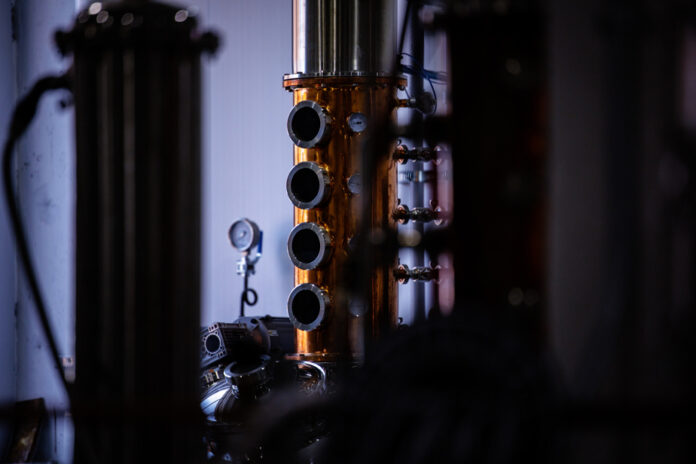Distillerie 1769 makes vodka, whiskey, gin and other spirits. In 2020, it moved to an industrial neighborhood in the LaSalle district, in a former small Seagram factory. It is a family business: the president, Maureen David, works with her husband, Andrew Mikus, and their two young (major!) sons who have just joined the company. They are also the ones who encouraged their parents to push the manufacturing process further and, above all, to start thinking about the circular economy.
How can we make alcohol in a more efficient way, in terms of production costs, but also the use of raw materials and energy?
Many Quebec distillers are forced to innovate if they want to stand out and carve out a place for themselves on the market and on the SAQ shelves.
Gin flavors are multiplying, but more and more houses are also adopting more sustainable practices, which they are putting forward since this will undoubtedly appeal to a sensitive clientele who is hesitating between two Quebec gins.
“When we established ourselves here in LaSalle,” explains Maureen David, “in the 1769 premises, we made the decision to change the way we make our grain base. »
And why ?
“Because we wanted to move towards a path that leads to more sustainability. »
According to Andrew Mikus, co-founder and master distiller of 1769, ordinary production leaves large amounts of grain residue. Even when we made deals with farmers to collect some, some of it ended up in the trash. “We recycled pretty much everything else, but not used grain,” he says.
So came this idea of recovering someone else’s “waste”. In this case, beer that was destined for the sewers.
First question: Who throws beer down the drain?
Breweries do it and much more than we think. Already, in ordinary production, part of the beer at the bottom of the tank is thrown away because it contains sediment. Then, no one is safe from a bad recipe. In this case, it is difficult to recover the beer.
“The beer is not bad,” explains Andrew Mikus, “but it does not meet the quality criteria. »
As the drink is alcoholic, the company that produces it must pay the city to dispose of it by throwing it down the drain.
When Distillerie 1769 offered brewers the opportunity to recover condemned batches, there was something for everyone.
The distillery reduces its raw material costs and its electricity bill.
The distillery made a major investment in purchasing a continuous still, a magnificent machine designed in British Columbia. The piece is as impressive as its value: around half a million dollars. As its name suggests, rather than working in batches, the still distills continuously by removing water from the beer by boiling. This increases efficiency and the distillery is therefore able to recover around 50,000 liters of beer per month. At 5% alcohol, that becomes around 4,000 liters of 95.5% neutral grain alcohol, says Andrew Mikus.
This neutral alcohol – since only the ethanol remains – is then used to make other spirits.
The distillery would like this way of doing things, this production philosophy, to be better known to consumers. Because buying gin (and a Quebec gin, to boot!) is less common than the bottle of wine you pick up at the SAQ on Friday evening.
And when you choose a $50 bottle of spirits, it’s not for making cocktails, says Andrew Mikus. It’s to taste it.















